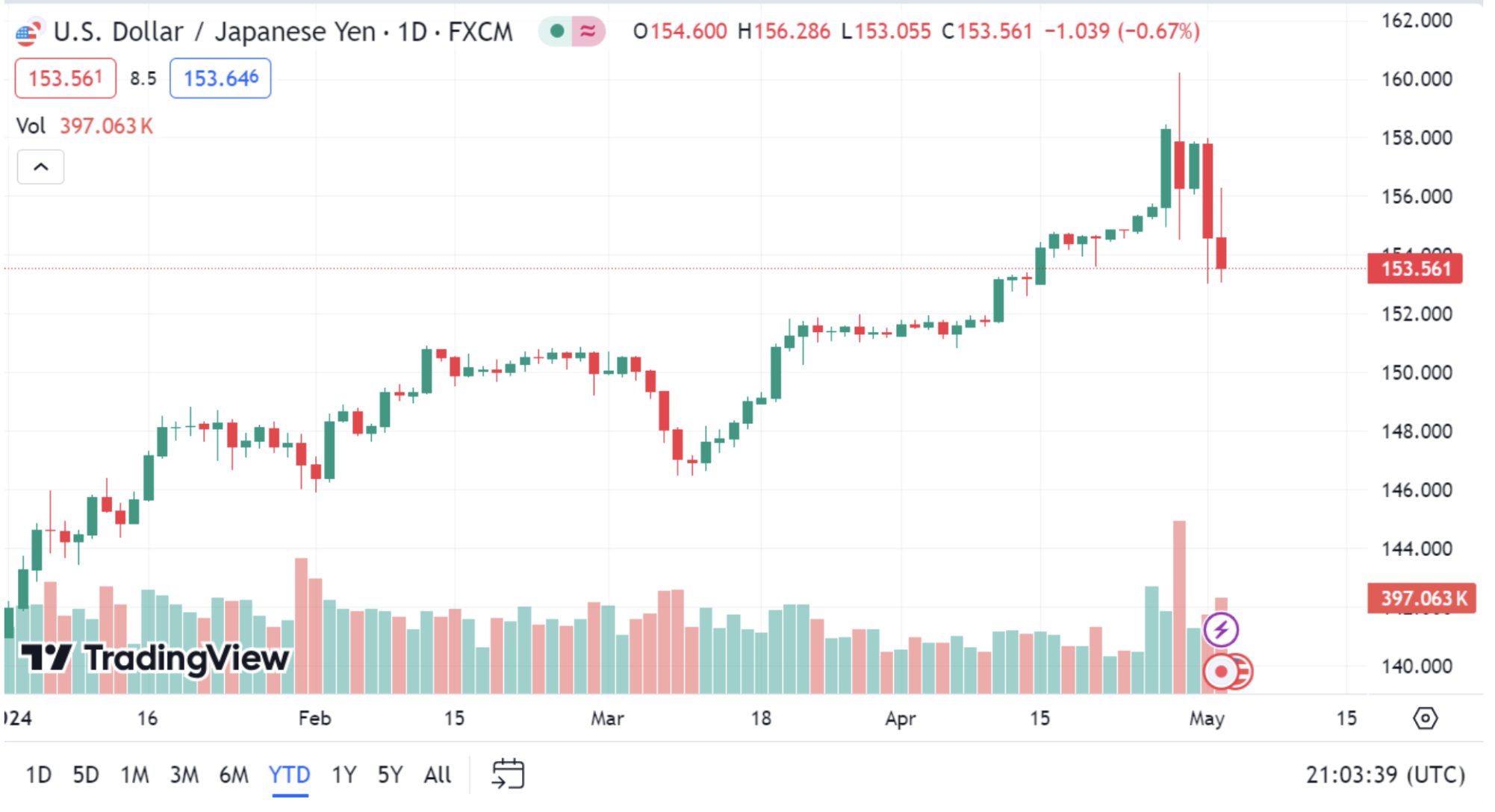High Rates in the US and Europe
Due to the high rates, primarily of the American Fed and the European Central Bank, the Japanese currency has lost nearly a third of its value over the last 3 years. This happened because of the strengthening of Western currencies, whose interest rates are rising. According to economic theory, such a move by a central bank will increase returns on investments in the respective economy, specifically in government bonds.
The USDJPY currency pair reached its record low just a few days before the meeting of the American central bank, which, as expected, left interest rates unchanged at 5.25 – 5.50%.* Since investors were expecting interest rate cuts in the US at the beginning of the year, such a move, despite the lack of tightening of monetary policy, led to the strengthening of the dollar.
Long-Term Yen Decline
The Japanese economy is unique in that it experiences inflation very rarely. This contrasts with Western economies, which are currently struggling with high, albeit declining inflation, which is somewhat paradoxical. Since the Japanese economy currently needs inflation to boost its economy, low interest rates persist in Japan, which push for currency depreciation.
To defend the yen, the Japanese central bank intervenes relatively frequently. For example, in 2022, it intervened three times, with a total of $60 billion, buying its own currency on the market to increase demand for it.

Source: https://www.tradingview.com/chart/?symbol=FX%3AUSDJPY
Intervention Strengthened the Yen Again
Bloomberg estimates suggest a more significant intervention this time, totaling $23 billion, but this is an unconfirmed figure. However, intervention likely occurred, as after reaching a long-term minimum and simultaneously a significant level of 160 yen to the dollar, the yen sharply strengthened.
Impacts on the Japanese Economy
Although a weak currency may seem advantageous for an export-oriented country, certain areas of the Japanese economy will suffer from this situation. Japanese exporters currently have a huge advantage in the market, and in February of this year, the number of tourists enjoying relatively cheaper stays in Japan reached a record 2.8 million in a single month.
However, households will be negatively affected as imported goods become more expensive for them. Also, a weaker currency discourages Japanese people from holding their savings in yen, as they lose value even without inflation. Currently, it is significantly more profitable for Japanese people to hold foreign currencies and appreciate them, for example, in the United States. However, this further weakens the Japanese yen and creates a vicious cycle of currency depreciation.
Future Development
Soon, we can expect a continued gradual weakening of the yen. It is unlikely that the American Fed or the Bank of Japan will significantly change their monetary policy.
* Past performance is no guarantee of future results
Sources:
https://www.theguardian.com/world/2024/apr/30/japan-economy-yen-currency-value-falling-low-impact



.jpg)



.jpg)
